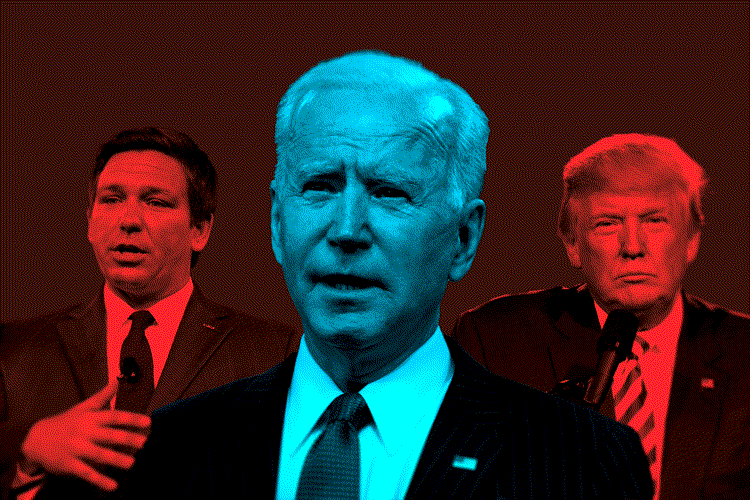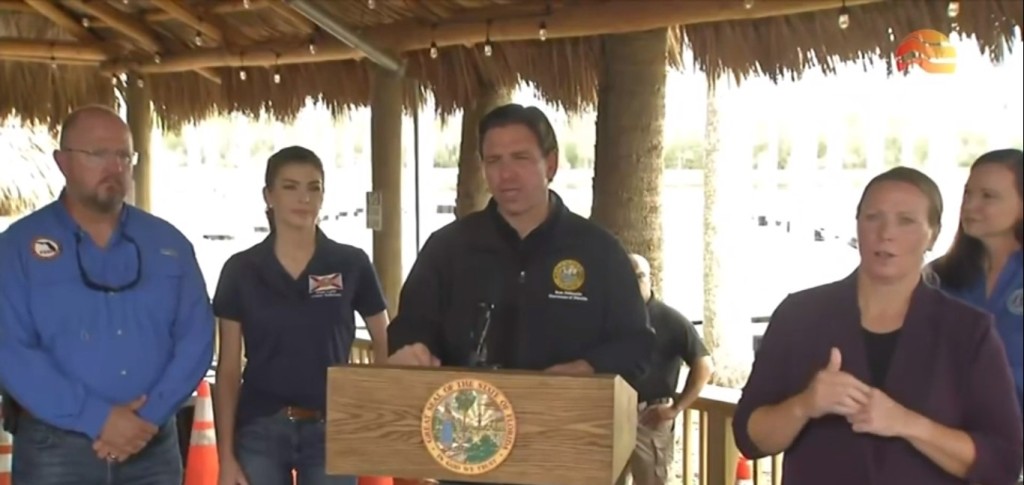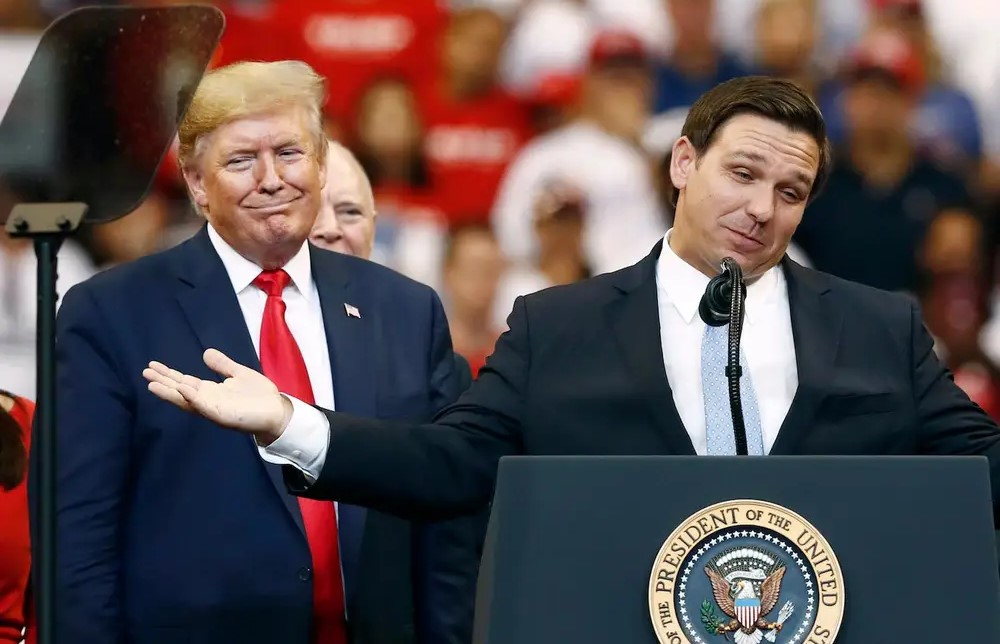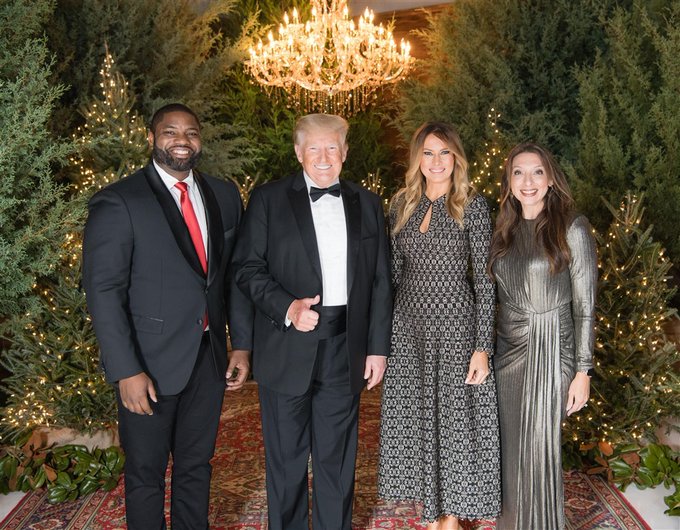
Nov. 5, 2023 by David Silverberg
This coming Wednesday, Nov. 8, if all goes as scheduled, Republican presidential candidates will gather in Miami, Florida at the Adrienne Arsht Center for the Performing Arts of Miami-Dade County for their third, nationally televised debate.
This one will be hosted by the NBC network and moderated by anchors Lester Holt, Kristen Welker and Hugh Hewitt, a conservative radio talk show host. It will have the legitimacy of a traditional, mainstream media event, so no matter how anti-media the candidates have been, they cannot escape its credibility and real impact.
It’s not clear as of this writing which candidates will qualify to be on stage. But what is almost 100 percent certain is that the leading Republican candidate, former President Donald Trump, will deliberately be absent.
“I’m up 56 Points, so the Debates would seem to be a complete waste of time,” Trump posted on his Truth Social platform on Sept. 28. “The Debates should be ENDED, BAD for the Republican Party!”
As usual, Trump completely misunderstands the nature and value of debate. He prefers to have people unquestioningly obey his own dictatorial dictums. He’s most comfortable delivering his rambling, stream-of-consciousness harangues to an utterly accepting audience of believers.
However, his dismissal of debate is also revealing of how trivial and superficial political debate in America has become. This is a pity because debate is the very essence of democracy, indeed, of non-violent discussion and change.
So with a major, if crippled, debate coming to Florida’s shores, it’s perhaps a good time to examine the nature of debate, its value and its elemental place in the democratic process.
The Merriam Webster Dictionary defines debate as “a contention by words or arguments” and “a regulated discussion of a proposition between two matched sides.”
As a verb, to debate is “to argue about” and “to engage (an opponent) in debate” or “to turn over in one’s mind: to think about (something, such as different options) in order to decide.”
There are many kinds of debate in many fields. But when it comes to candidate debates, at its core, a debate’s real purpose is to give voters the opportunity to examine and weigh candidates, their records and proposals in an absolutely equal, apples-to-apples setting. Voters should emerge from a debate informed, enlightened and ready to make a reasoned, intelligent choice at the ballot box.
It’s not the screaming or the insults or the horserace or even the resulting poll numbers that make a debate worthwhile. It is the education of the public.
Of course, that’s not how it has always played out and certainly not recently.
The cornerstone
Free, open and unfettered debate pervades all democratic governance, whether in legislative lawmaking, executive rulemaking or in citizen selection of governing officials, i.e, elections.
From the very beginning of democracy in Athens, Greece, through the Roman Republic to our own time, debate is essential to government decisionmaking.
This was embodied in the very first official document of what would become the United States of America, the Declaration of Independence:
“We hold these truths to be self-evident, that all men are created equal, that they are endowed by their Creator with certain unalienable Rights, that among these are Life, Liberty and the pursuit of Happiness. That to secure these rights, Governments are instituted among Men, deriving their just powers from the consent of the governed.”
Reaching that “consent of the governed” can only be achieved through debate.
There can be debates over different courses of action in autocracies but those debates are usually limited to a few councilors around the autocrat, who makes a decision in his own mind and then imposes it on everyone else.
Throughout American history there were debates of enormous consequence: the Constitution itself was forged through debate; the country was held together through compromises in 1820 and 1850 after debates over nullification of federal law and the expansion of slavery.
Perhaps the greatest example and archetype of all American political debates were those held between Republican challenger Abraham Lincoln and Democratic Sen. Stephen Douglas in 1858. Held in each of Illinois’ nine congressional districts, the debates largely covered the question of slavery’s expansion and received saturation coverage from the nation’s newspapers, elevating Lincoln to national status.
As an incumbent, Douglas was initially reluctant to debate. But he was branded a coward by his opponents and the newspapers, forcing his hand. There was a penalty to be paid for dodging debate.
Douglas defeated Lincoln for the US Senate seat for Illinois, which was decided by the state legislature. Lincoln went on to win the presidency in 1860. But importantly, their debates set the archetype for candidate campaigning and proper conduct in American elections until our own time.
Television and trivialization
Debates have been a cornerstone of American election ritual at all levels of government. So routine and fundamental were they that singers Simon and Garfunkel mocked them in the song “Mrs. Robinson” when they listed ordinary, banal activities: “Sitting on a sofa on a Sunday afternoon, Going to the candidates debate.”
What has happened over time, though, is the gradual trivialization of what should be serious discussions and an ever-growing media obsession with the horse race aspects. As soon as the screen fades to black after a debate there’s an obsession by pundits and politicians with who “won” the debate. Politicians gather in “spin rooms” off the debate stage to influence media coverage. There’s little to no real analysis of policies, positions or records. After all, that stuff is boring.
The trivialization seems to have begun with the introduction of television. The first televised presidential debates came in 1960 between Democratic Sen. John Kennedy and Republican Vice President Richard Nixon. While the debate covered policy substance (and people listening on radio thought that Nixon won on points) Nixon’s perspiration and five o’clock shadow were thought to have lost him favor with the audience.
Clever comebacks and bon mots have always been an element of debate and they certainly have an impact on voters. When in 1984 Republican President Ronald Reagan debated Democratic former Vice President Walter Mondale, he torpedoed the issue of his age (73) with the line: “I want you to know I will not make age an issue of this campaign. I am not going to exploit for political purposes my opponent’s youth and inexperience.” Mondale was no stranger to his own deft thrusts. Earlier that year he skewered the lack of policy substance in his primary opponent during a debate with Sen. Gary Hart by asking him, “Where’s the beef?”
Debates may have become increasingly trivialized but there’s no doubt that their quality plunged in 2016 with the arrival of Donald Trump. His campaign was full of lies and insults and crudeness that spilled onto the debate stage both at the primary and general election levels. He dragged political discourse into a gutter from which it has not arisen to date. The screaming matches of the previous two Republican primary debates are evidence of this.
There’s also no denying that Trump’s performances worked for him with Republican primary voters and won him the nomination. However, given that Hillary Clinton won the popular vote by 2 million votes, it’s debatable whether those same tactics scored in the general election.
But if reasonable debate has been damaged, it’s being damaged further by attacks on the very institution of candidate debate itself.
Southwest Florida and the decline of debate
In 2018 in Southwest Florida’s 19th Congressional District, the coastal area from Cape Coral to Marco Island, incumbent Republican Rep. Francis Rooney was running against Democratic challenger David Holden.
In September of that year the Collier County League of Women Voters set a date for a debate and invited both candidates to attend. Holden accepted immediately. Rooney responded that he had “no availability” on that date—and “no future availability.” What was more, he stated he had no need to debate because “everyone knows my positions.”
In days gone past, a debate would have been held anyway with an empty chair representing the absent candidate—or, as in the Lincoln-Douglas debates, the non-debater would have been branded a coward. In any event, refusing a debate would have come with a price paid in public opprobrium and at the voting booth.
That didn’t happen in Southwest Florida. All the institutions that should defend democracy, the civic organizations, the media and other politicians, remained silent and cowed. There was no debate, there was no penalty for Rooney and voters remained uninformed. Rooney never had to defend his record or the policies he was pursuing and voters never saw him face to face with his opponent.
Rooney wasn’t alone. Other Republican candidates that year dodged debates altogether rather than be forced to defend Trump and his policies—and got away with it.
At least in 2020 Trump was forced to debate his Democratic opponent, former Vice President Joe Biden, in person, on stage. Trump performed abysmally, coming across as crude, rude, impatient and ignorant.
Even Florida Gov. Ron DeSantis (R), who praised Trump at the time, has now revised his assessment of that debate.
“This is something you have to earn. Nobody is entitled to this,” DeSantis said in a Fox News interview on Sept. 28. “You know, I remember back in 2020, I had a big party in Tallahassee for that first debate that Trump did with Biden. And the reality is Biden beat Trump in that debate—Biden—and I don’t know how you can lose to Biden in a debate, but that happened.”
Now Trump is dismissing debates altogether and calling for their end. His opponents are understandably infuriated. Former New Jersey Gov. Chris Christie has branded Trump “Donald Duck” for ducking previous debates.
DeSantis is saying that Trump is hiding behind a keyboard by issuing social media insults rather than coming out to debate. DeSantis has suddenly become a great advocate of debating.
“You know, it’s one thing to do it behind a keyboard; step up on stage and do it to my face,” he told Fox anchor Bill Hemmer. “I’m ready for it. You used to say I was a great governor. Now all of a sudden you’re saying the opposite. Let’s have that discussion. And I’ll do it, we could do it one-on-one. Let’s do that. And let’s give the American people the choice that they deserve.”
For once, DeSantis is right. Voters deserve the right to see candidates for election—for any office—together, in person, debating the issues, their records and their proposals.
Quite clearly Trump doesn’t want to debate. He’s a terrible performer in a real debate and he just wants to continue his digressive rants to an adoring and unthinking mob. He wants election without having to defend his past or reveal his future. His Trumplike minions running for office down the ballot want similar validation without facing scrutiny.
But more, Trump doesn’t want debate of any kind in any sphere. He tried to overthrow the legislative branch of government where laws are debated. He wants to just dictate his version of reality.
That’s not democracy. That’s dictatorship.
It’s long past time to bring back serious, substantial political debates at all levels. American democracy depends on it.
Trump—and any candidate for any office—should pay a steep price for dodging this basic rite of democracy. Civic organizations like the League of Women Voters need to step up and do their part. They need to make candidates who ignore or avoid debates pay a price. Such candidates should be publicly shamed and debates should proceed without them, using an empty chair. Their opponents should benefit from their absence and cowardice.
It would also be worthwhile if the media tried to bring at least a little more seriousness into their commentary and analysis. It would be beneficial if at least one member of a panel of pundits actually examined what the candidates say in a debate and evaluated the substance of their policy proposals—if they have any.
But most of all, it’s long past time that debates were returned to their fundamental purpose: educating voters and giving them the opportunity to make a rational, informed choice when they consent to be governed. After all, as the saying goes, “elections have consequences” and the results of those elections fundamentally affect every person’s life. People should know what they’re getting.
That kind of education is not to be expected in Miami on Wednesday night. But that doesn’t in any way invalidate the ideal and value of a rational, orderly, substantive debate.
Debate may be an imperfect means of assessing candidates and making decisions. But to paraphrase what Winston Churchill once said of democracy itself, it’s the worst possible means— except for all the others that have been tried from time to time.
Liberty lives in light
© 2023 by David Silverberg
























